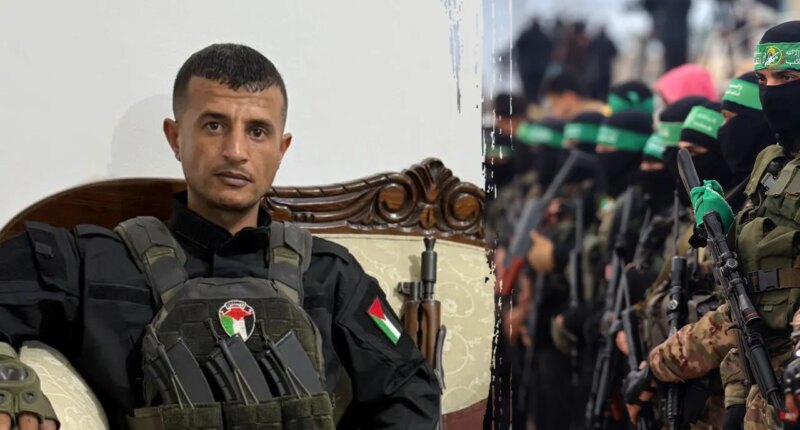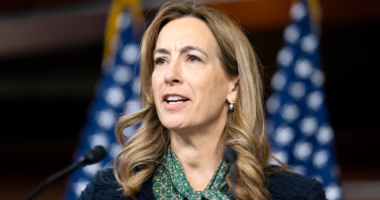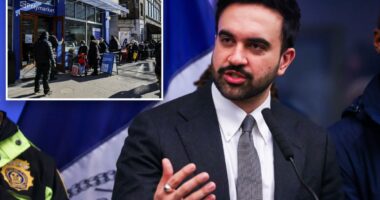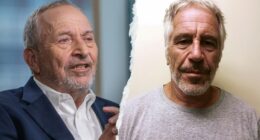As President Donald Trump recently met with Israeli Prime Minister Benjamin Netanyahu, discussions about who might lead Gaza if Hamas loses its grip are becoming more frequent. Prospective leaders include local tribal and militia figures.
Among those under consideration is Yaser Abu Shabab. Previously imprisoned by Hamas over allegations of theft and corruption, he now heads a faction of armed men in Gaza’s Rafah, who secure aid convoys and openly oppose Hamas’s authority. “We are not a militia,” he stated in an interview with Israeli news source Ynet. “Consider us counter-terror units. Our mission is to safeguard Palestinian human rights from Hamas’s terror activities.”
Abu Shabab’s group, known as the “Popular Forces,” began forming in early 2024 after the IDF entered Rafah, and Hamas lost control of the area. Allegedly under Israeli protection, his men now escort aid trucks, distribute supplies, and assert control over parts of eastern Rafah.
Milshtein claimed Israel’s support for the group includes captured Hamas weapons and coordination from Palestinian officers based in Ramallah. “Hamas even fired RPGs at them during the ceasefire,” he said. “And Israel responded by striking Hamas. It’s clear they’re being protected.”
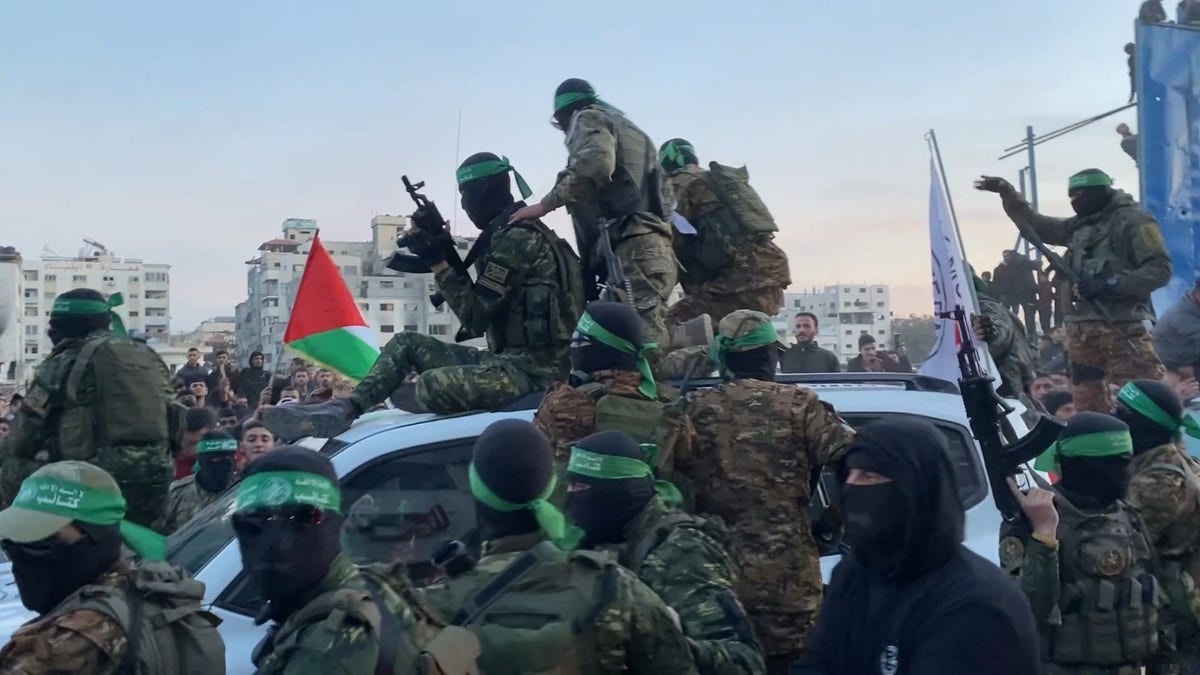
Hamas terrorists emerging from the shadows as they surround Red Cross vehicles. A Palestinian man was killed by Hamas terrorists after protesting against the group, according to reports. (TPS-IL)
Abu Shabab, who belongs to the influential Tarabin Bedouin clan, says his resistance began when he saw Hamas diverting humanitarian aid. “I started seizing trucks and handing out food,” he told Ynet. “I became a wanted man by Hamas, but I fed children. My conscience is clear.”
Inside Gaza, reactions are mixed. Some locals reportedly follow Abu Shabab because they fear Hamas more than they trust him. Others, like political analyst Mkhaimar Abusada, claim his support is shallow.
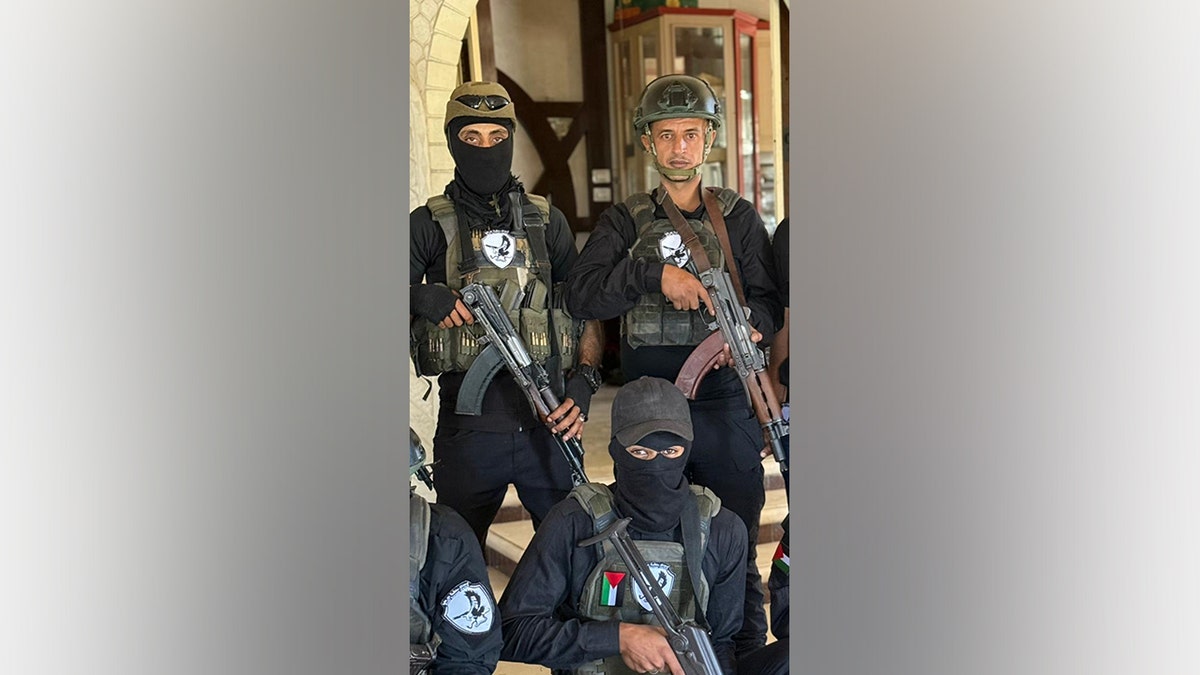
Yaser Abu Shabab with members of his militia. (The Center for Peace Communications)
“He’s been disowned by his own tribe,” Abusada claimed, currently a visiting scholar at Northwestern University. “The Tarabin see him as a collaborator. If Israel leaves Gaza, Abu Shabab will vanish — or be hunted down by Hamas.”
In his Ynet interview, Abu Shabab said, “We will not leave the Gaza Strip and will continue to fight Hamas until the last one is dead,” and added that his group supports the return of Israeli hostages. “Hamas calls me a thief, a traitor, even ISIS — all to scare people. But they’re the ones who killed children, like the Bibas family. They live in tunnels. We lost everything.”
In his interview on Sunday, Abu Shabab denied any connection with Israel. “We are people of peace and brotherhood and do not want wars,” he emphasized. “Our connection is with the Palestinian Authority — that’s all.”

Israeli hostages Averu Mengistu and Tal Shoham are flanked by Palestinian Hamas terrorists as they stand on a stage during their release in Rafah in the southern Gaza Strip on Feb. 22. (Omar Al-Qattaa/AFP via Getty Images)
Still, Milshtein sees the project as short-sighted. “There’s no strategy here,” he said. “Just tactical improvisation. The same people who failed to prevent October 7 are now betting on someone like Abu Shabab. It’s delusion — and it’s dangerous.”
Braude said Abu Shabab is no ideologue. “He’s a fighter, not a politician,” he said. “But if someone like him can hold territory while professionals within it build a civil administration, then that’s a meaningful precedent.”
Fox News Digital reached out to the IDF and Israeli government for comment on allegations it was funding and protecting Abu Shabab and his militia.
